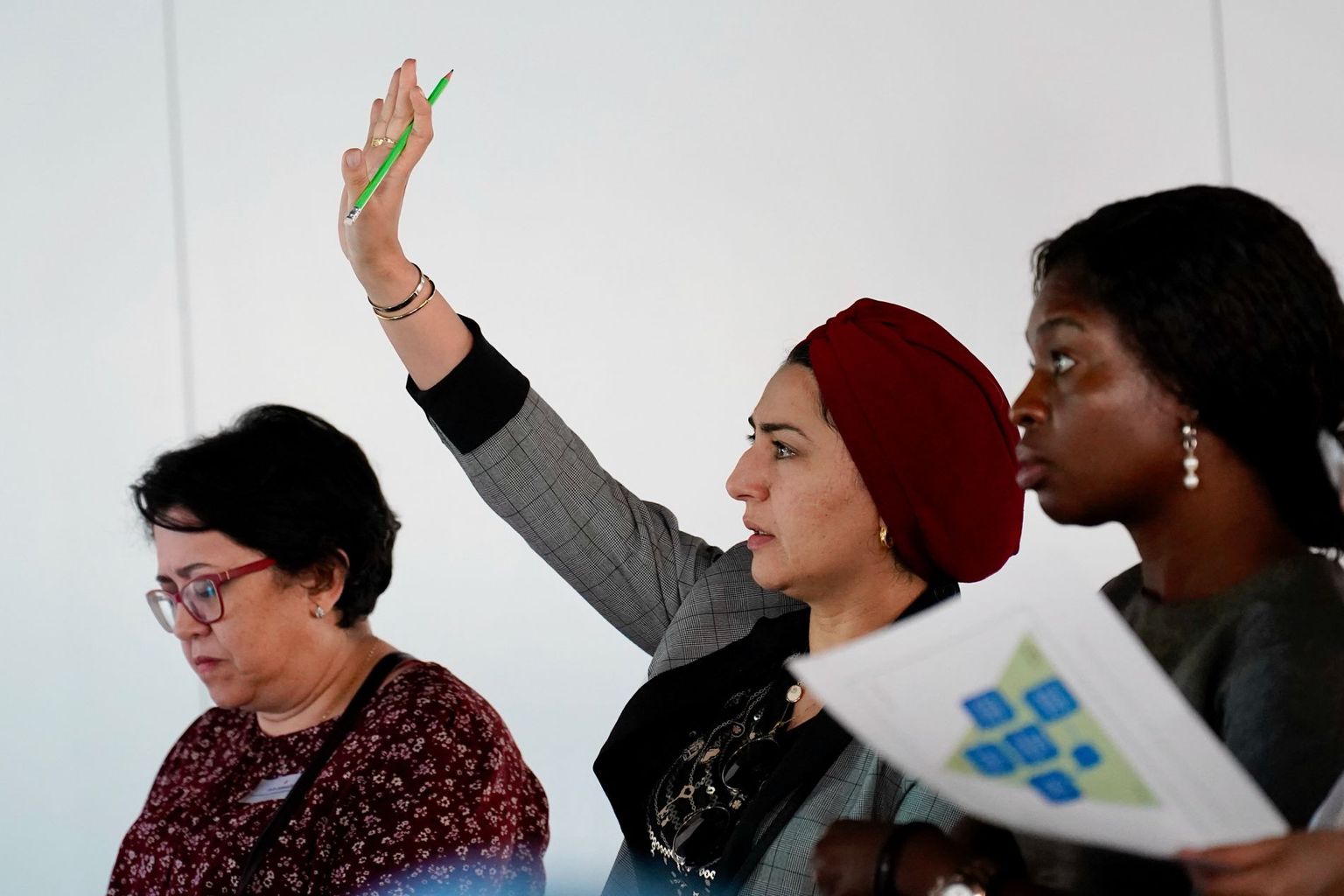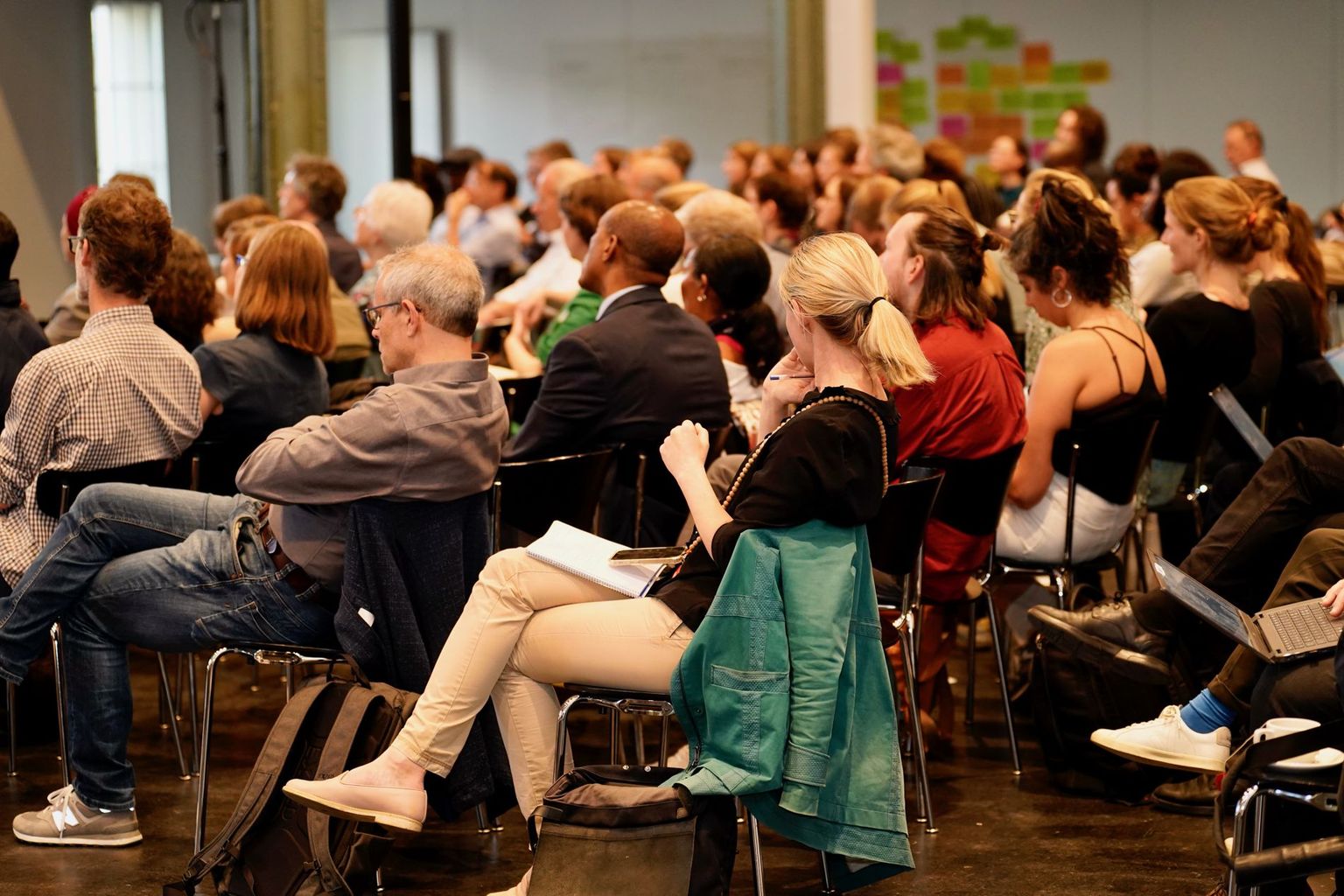Conference Programme May 5
- Panel DiscussionImmagine: Anna von Sury1/30
- Thomas BreuImmagine: Anna von Sury2/30
- Ravaka AndriamihajaImmagine: Anna von Sury3/30
- Gretchen WaltersImmagine: Anna von Sury4/30
- Gete ZelekeImmagine: Anna von Sury5/30
- Garry AslanyanImmagine: Anna von Sury6/30
- Jasmina SaricImmagine: Anna von Sury7/30
- Fabian KäserImmagine: Anna von Sury8/30
- Panel DiscussionImmagine: Anna von Sury9/30
- Panel DiscussionImmagine: Anna von Sury10/30
- BreakoutgroupsImmagine: Anna von Sury11/30
- BreakoutgroupsImmagine: Anna von Sury12/30
- BreakoutgroupsImmagine: Anna von Sury13/30
- BreakoutgroupsImmagine: Anna von Sury14/30
- BreakoutgroupsImmagine: Anna von Sury15/30
- BreakoutgroupsImmagine: Bild: Anna von Sury16/30
- Conference 2023Immagine: Anna von Sury17/30
- Conference 2023Immagine: Anna von Sury18/30
- Conference 2023Immagine: Anna von Sury19/30
- Conference 2023Immagine: Bild: Anna von Sury20/30
- Conference 2023Immagine: Anna von Sury21/30
- Conference 2023Immagine: Anna von Sury22/30
- Conference 2023Immagine: Bild: Anna von Sury23/30
- Conference 2023Immagine: Anna von Sury24/30
- Conference 2023Immagine: Anna von Sury25/30
- Conference 2023Immagine: Anna von Sury26/30
- Conference 2023Immagine: Bild: Anna von Sury27/30
- Conference 2023Immagine: Bild: Anna von Sury28/30
- Conference 2023Immagine: Bild: Anna von Sury29/30
- Conference 2023Immagine: Bild: Anna von Sury30/30
The aim of the conference on May 5 was to bring together all actors interested in the debate on decolonizing Swiss research collaborations. We experienced a diverse and interactive programme that provided different perspectives on decolonizing research collaborations, showcased different practical approaches and stimulated discussions among participants.
Welcome

Thomas Breu opened the conference. Participants were asked what they associate with the term "decolonizing" and whether they like this term or not. The image below shows associations with the term "decolonizing". The poll whether participants liked the term or not achived an exact tie of 46 votes each.

Prof Dr Thomas Breu
- President, Swiss Commission for Research Partnreships with Developing Countries (KFPE)
- Director, Centre for Development and Environment (CDE)
- Executive Director, IGS North-South
Keynotes
With a video Dr Ravaka Andriamihaja, Dr Mariah Ngutu and Dr Ama Asantewah introducted to the concepts of decolonizing research collaborations, challenges, best practices and motivations, dynamics and the KFPE Project.
Dr Ravaka Andriamihaja
- Senior Research Scientist Centre for Development and Environment CDE
Dr Ama Asantewah
- Lecturer Agricultural Economics and Agribusiness, University of Ghana
Dr Mariah Ngutu
- Research Affiliate Institute of Anthropology, Gender and African Studies, University of Nairobi
About the KFPE Project on:

Decolonial perspectives question prevalent modes of producing scientific knowledge. Anthropologist Francis Nyamnjoh argues that recognition of our knowledge as incomplete is a crucial step to advance knowledge-making with others across geographies and disciplines. We explored what this means in a Swiss collaboration with Gabon.
Assistant Professor Gretchen Walters
- Assistant Professor Institute of Geography and Sustainability, University of Lausanne

Research and research collaboration can be meaningful if they inform policy making, strategy design and actions on the ground. However, they experienced two challenges: i) many of the research collaborations are dominated by the interests of northern scholars and/or funding agencies, and ii) often, research in the Global South have been pursed for personal carrier development or to satisfy the interests of the funding agency instead of the commitment to inform policy, strategy and development interventions. As a result, most research findings remain on shelf gathering dust and getting obsolete, while the Global South is still suffering from the combined impacts of extreme poverty, environmental degradation and climate change. We at WLRC tried to change this trend by introducing a hybrid approach, namely: linking research with implementation on the ground. The partners in the South had freedom to suggest context-specific approaches with the research collaborators in the North adding value to the new approach. This approach resulted in improvements on ecosystem services, livelihoods and resilience in the project areas. The approach also enabled to generate not only actionable recommendations but also additional empirical evidence for upscaling and out scaling.
Dr Gete Zeleke
- Director General Water and Land Resource Center (WLRC), Addis Ababa University

The presentation critically assessed why current balance of power and resources continues to impede global efforts in achieving sustainable development goals. While there have been efforts to introduce elements of decoloniality in certain relationships and activities of international development, particularly in the health sector, the introduction of new terms to describe this lack of balance of power are leading to mixed results. There is a growing skepticism that terms such as “decolonization” are being interpreted equally by all or if the new terminology leads to yet another cycle of failure. The presentation concluded with the promise of more equitable partnerships for research that addresses pertinent global challenges.
Dr Garry Aslanyan
- Manager, TDR at WHO
- Head of Secretariat, ESSENCE
- Host, Global Health Matters Podcast
Group Discussion
During this session we discussed different topics related to decolonising research collaborations in smaller groups. Participants in Bern and online could each choose from different topics to engage in an in-depth discussion.
In Bern:

Research funding is an important aspect of research collaborations (for initiating new collaborations but also for financing existing projects) and is therefore part of the debate on decolonizing research collaborations. In recent years, a certain change in research funding has been initiated thanks to "research on research” or the San Francisco Declaration on Research Assessment (DORA). This change has a certain relevance for the debate on decolonizing research funding. In this workshop, some elements of research funding will be presented briefly (e.g. DORA, new SNSF CV, panel composition). The discussion focused on the following two guiding questions:
- What are the general challenges for/within research funding (submission, evaluation, reporting, etc.)?
- What are elements that could help to decolonize research funding?
Andrea Landolt
- Head of International Funding at the Swiss National Science Foundation SNSF

The basis of knowledge creation, pedagogies, curriculum development, teaching methods, research methodologies, and research environments have all been plagued with relics of colonial hegemonies, power dynamics, and institutional racial hierarchies. This workshop examined attempts at decolonizing academic and research institutions based on reflections of the aforementioned. It chronicled the decolonization journeys of two institutions who are threading different paths to decolonization: one through an academic study of its theoretical and physical space, the other through poignant changes to core elements of its teaching methods, admission processes, and overall institutional framework. A fundamental part of the workshop focused on lessons learned and lessons shared, with a planned interactive session for experiential comparative analysis. The main goal of this workshop was to bring to the forefront conversations on plausible and pragmatic decolonization approaches that took into cognizance essential elements that were devoid of racism, white-gaze, and funding-related power ownerships
Dr Medinat Malefakis
- Senior Lecturer, NADEL, ETH Zurich
Dr Claire Somerville
- Lecturer, Geneva Graduate Institute (IHEID)

Every step in a research project – from agenda setting and finances, empirical research, to knowledge transfer and capacity building – should be subject to decolonization. At the same time, decolonizing research projects poses multiple challenges in various dimensions. The workshop addresseed three of these dimensions and discusseed challenges and ways forward for each project step. The first dimension touches on the set-up of partnerships, where striving for fairness is pivotal. The second deals with contexts, cultures, and conflicts, where degrees of awareness and sensitivity are closely linked to the quest of decolonization. Finally, risk preparedness of institutions and projects also poses decolonization challenges as unequal treatment is often accentuated in times of crisis or incidents. By discussing the project steps against the background of the three dimensions, the workshop also highlighted the interconnectedness of these three dimensions and thereby pointed to the complexity of decolonization challenges.
Dr Lara Lundsgaard Hansen
- Senior Research Scientist at the Centre for Development and Environment (CDE), University of Bern
Sara Frey
- Research Associate at the Centre for Development and Environment (CDE), University of Bern
Prof. em. Dr. Urs Wiesmann
- Prof. em. at the Centre for Development and Environment (CDE), University of Bern
online:

Decolonising North-South research collaboration has been a longstanding quest, with ongoing asymmetries and obstacles. This study thus aims to annotate and develop practice tools for decolonising North-South collaborative research. The approach was participatory, engaging academics and non-academics to elicit perspectives on motivations to decolonise, relevant processes, and plausible success opportunities. Using mixed analysis methods, the study will examine past and ongoing partnerships to generate practice tools and reports.
Following a presentation of our research project, we spilt up into three groups for discussion:
- "Effectiveness of Decolonising North-South Research Collaborations: A Practice Trail to Plausible Success"
- "Dynamics, challenges and opportunities – what measures and practice should be instated"
- "Decolonisation practice tools and implementation, plausible level of current success considering past attempts and experiences"
Moderation by:
Dr Ravaka Andriamihaja
- Centre for Development and Environment CDE
Dr Mariah Ngutu
- Institute of Anthropology, Gender and African Studies, University of Nairobi
Dr Ama Asantewah
- Agricultural Economics and Agribusiness, University of Ghana
More about the study:
Input

If well managed and supported, Research−implementation Organizations (RIOs) can accelerate sustainable development (SD) by contributing to evidence-based and high-quality project implementation. Moreover, they serve as comprehensive teaching and training centres for an SD workforce and act as national program memory. The presented research series describes the RIO operational model and its strengths and weaknesses.
Dr Jasmina Saric
- Swiss Tropical and Public Health Institute (SwissTPH)
Panel Discussion
Moderation:
Dr Gete Zeleke
- Director General Water and Land Resource Center (WLRC), Addis Ababa University
Speakers:
Odile Robert
- Head Section Analysis and Research, Swiss Agency for Development and Cooperation (SDC)
Alexander Schulze
- Chief Programme Officer Botnar Foundation
Medinat Malefakis
- Senior Lecturer ETH NADEL
Gueladio Cissé
- Head of Unite Ecosystem Health Sciences SwissTPH
Hugues Abriel
- Vice-Rector for Research University of Bern
Kornhausforum Bern
Kornhausplatz 18
CH-3011 Bern
Online participation was possible via Zoom.
Fabian Käser
































